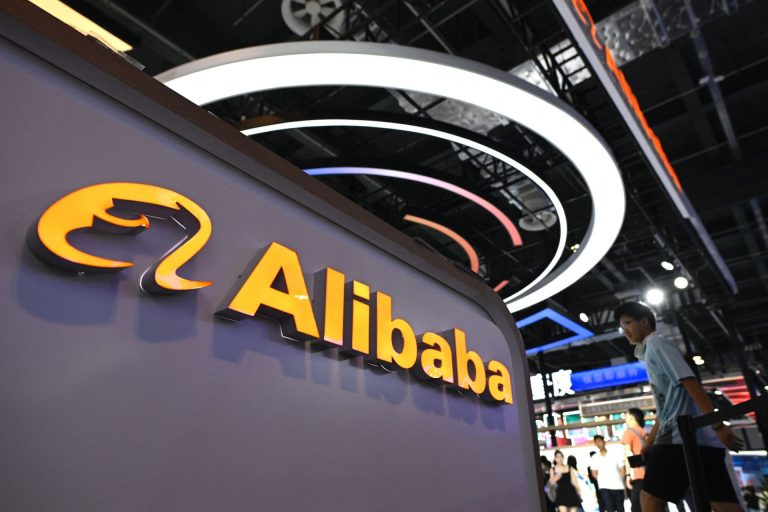Alibaba Launches New AI Chatbot in Renewed Push for Consumer Market Dominance


Alibaba Group Holding Ltd has launched a new artificial intelligence chatbot assistant within its Quark app, deepening its push into the consumer AI space currently dominated by ByteDance and Tencent.
The launch marks a significant shift for the Chinese e-commerce giant, which has traditionally focused its AI innovations on enterprise clients through its cloud division.
The new chatbot, announced on Thursday, is integrated directly into Quark — an app that began as a simple browser but has since evolved into Alibaba’s flagship consumer platform. The company said the AI assistant allows users to interact through text or voice, offering real-time information, conversational assistance, and service integration. The service is free to use and powered by Alibaba’s latest Qwen3 models, which boast enhanced reasoning, comprehension, and task execution capabilities.
Register for Tekedia Mini-MBA edition 19 (Feb 9 – May 2, 2026): big discounts for early bird.
Tekedia AI in Business Masterclass opens registrations.
Join Tekedia Capital Syndicate and co-invest in great global startups.
Register for Tekedia AI Lab: From Technical Design to Deployment.
Quark’s AI assistant aims to redefine how consumers search, communicate, and access services on mobile devices.
The move represents Alibaba’s renewed attempt to establish a foothold in China’s competitive consumer AI market, which is increasingly being shaped by rivals. Despite being among the first to launch a public AI assistant app, Alibaba’s previous platform, Tongyi, failed to achieve widespread adoption. According to data from AI product tracker Aicpb.com, Tongyi recorded just 6.96 million monthly active users in September 2025.
In contrast, ByteDance’s Doubao commands a massive 150 million active users, making it China’s clear market leader in consumer AI assistants. DeepSeek, another fast-growing competitor, had 73.4 million users, while Tencent followed closely with 64.2 million.

Alibaba’s struggle to replicate its dominance in e-commerce within the consumer AI space has long been viewed as a strategic weakness, especially as its domestic rivals have leveraged vast social media ecosystems and entertainment platforms to accelerate adoption. The new integration within Quark signals an effort to pivot toward a broader consumer base by embedding AI features directly into an existing app that already has a loyal user community.
The company’s renewed push comes as global competitors such as Google, Microsoft, and OpenAI continue to expand their reach with platforms like Gemini, Copilot, and ChatGPT. In China, where strict regulations limit foreign AI services, local giants are racing to deliver high-performing generative AI experiences that match global standards.
Alibaba’s Qwen3 model, which underpins the new Quark assistant, represents the firm’s latest advancement in large language model technology. The model reportedly improves contextual understanding, response accuracy, and multi-turn dialogue handling, aligning with the capabilities of top-tier global systems. Analysts say this upgrade is crucial if Alibaba hopes to compete with ByteDance’s Doubao, which has captured younger demographics through integration with the Douyin ecosystem.

In addition to its chatbot announcement, Alibaba revealed that pre-sales for its new Quark AI Glasses will begin at midnight on Friday through its Tmall platform. The smart glasses, first showcased in July, will retail for 4,699 yuan (about $659.69), with deliveries expected to begin in December.
The AI-powered glasses, which combine real-time translation, augmented reality overlays, and digital assistant features, represent Alibaba’s entry into the rapidly growing market for wearable AI devices — an arena already populated by companies like Meta Platforms, whose Ray-Ban Meta smart glasses have attracted global attention.
The launch underscores Alibaba’s broader strategy to reposition itself as a consumer technology innovator at a time when its traditional e-commerce business faces slowing growth and intense competition from PDD Holdings and JD.com. The company has been diversifying aggressively — spinning off business units, restructuring leadership, and investing heavily in AI and cloud computing.
It is believed that Alibaba’s challenge is not in its technology but in user engagement. While its enterprise AI services are among the most advanced in China, its consumer-facing offerings have struggled to attract mass-market attention due to limited integration with social and entertainment ecosystems.
Still, Alibaba appears determined to reverse that trend. The company is betting on an ecosystem strategy that mirrors Apple’s tightly integrated approach — where hardware, software, and services reinforce one another.





